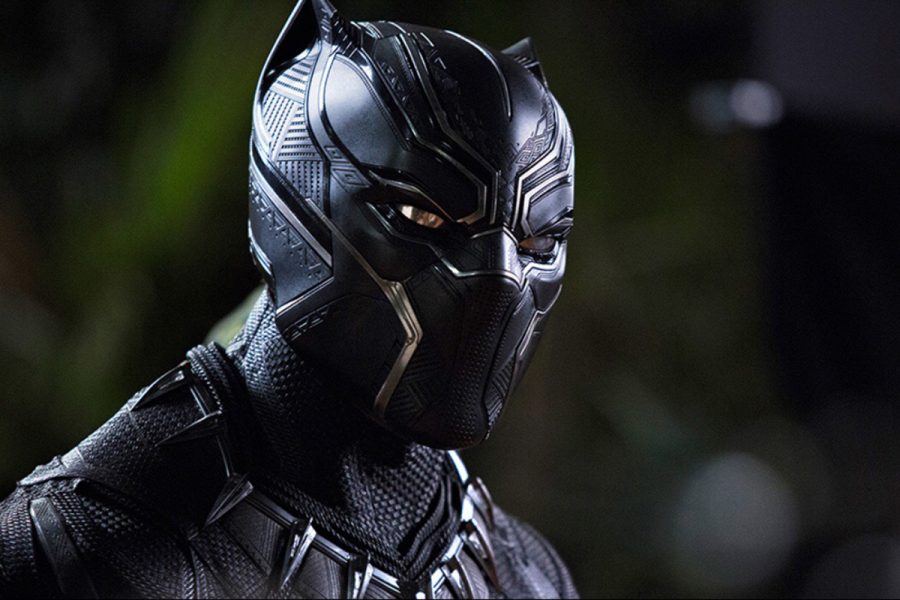Wakanda forever
‘Black Panther’ breaks media barriers
February 20, 2018
An otherworldly superhero. This can describe the movie “Black Panther” in a nutshell. Critics are buzzing about Marvel’s new cinematic movie starring Chadwick Boseman, Michael B Jordan, Lupita Nyong’o and other award winning actors. It is Marvel’s first film directed by an African-American, Ryan Coogler. “Black Panther” has brought a total estimate of $201.8 million globally for its three day debut.
One week away from its grand debut, “Black Panther” received its first negative review. Although many critics stand by and defend their own opinions, it’s hard to justify “Irish Independent’s” Ed Power’s stance— early in his review, he complains that the movie is “expected to stand for something bigger than itself.” Power appears distraught that T’Challa “doesn’t get to do much of jump around beating-up bad guys.” Power goes as far as to say this results in Boseman’s performance as T’Challa feeling “strained.” That single bad review made by Power lowered the film’s score on Rotten Tomatoes, going from a 100 percent to 97 percent. Nevertheless, fans and critics are not letting that comment interfere with their love for the new movie.
The story, described as a tale of black power and black pride in addition to its superhero themes, follows T’Challa (Chadwick Boseman) as he is sworn in as king of Wakanda, a hidden, technologically advanced country in Africa that is home to its main resource, vibranium. Vibranium is the main element of Black Panther’s suit and Captain America’s shield, and it also brings big trouble to T’Challa and his country.
T’Challa returns home to inherit the throne after his father dies in “Captain America: Civil War.” In order to take the throne, he is compelled to participate in a series of rituals ranging from a hand to hand challenge from other tribe leaders, to a trip to a spirit realm, where he visits T’Chaka, his father played by John Kani, for advice.
Unlike other comic book films that lean into hero vs. hero smackdowns, “Black Panther” differentiates itself by having a loyal team of allies for its main character. Wakandan “war dog” spy Nakia (Lupita Nyong’o) is T’Challa’s ex who remains close, Okoye (Danai Gurira) is the fierce leader of the Dora Milaje, Wakanda’s all-female special force and T’Challa’s tech-smart sister Shuri (Letitia Wright). The good guys run into mysterious mercenary Erik Killmonger (Michael B. Jordan), who becomes the most formidable challenger to T’Challa’s reign.
Superhero movies have long needed this kind of representation in terms of men and women of color, and for black audiences, this movie will undoubtedly be as culturally significant in the way it addresses subjects of identity, race and gender as “Wonder Woman” was to female fans.
In a time of renewed and necessary emphasis on representation in pop culture, “Black Panther” succeeds wildly, but it isn’t content to merely put African-American heroes on the screen and coast on the goodwill. Coogler aims to push the boundaries of the Marvel boilerplate, allowing the movie speaks to us in a fresh, vibrant language, rich in color and ethnology, from set pieces, costumes to characters. It’s an entertaining and thoughtful film, no doubt as it represents something bigger and greater: progress on the many fronts of the entertainment industry.














